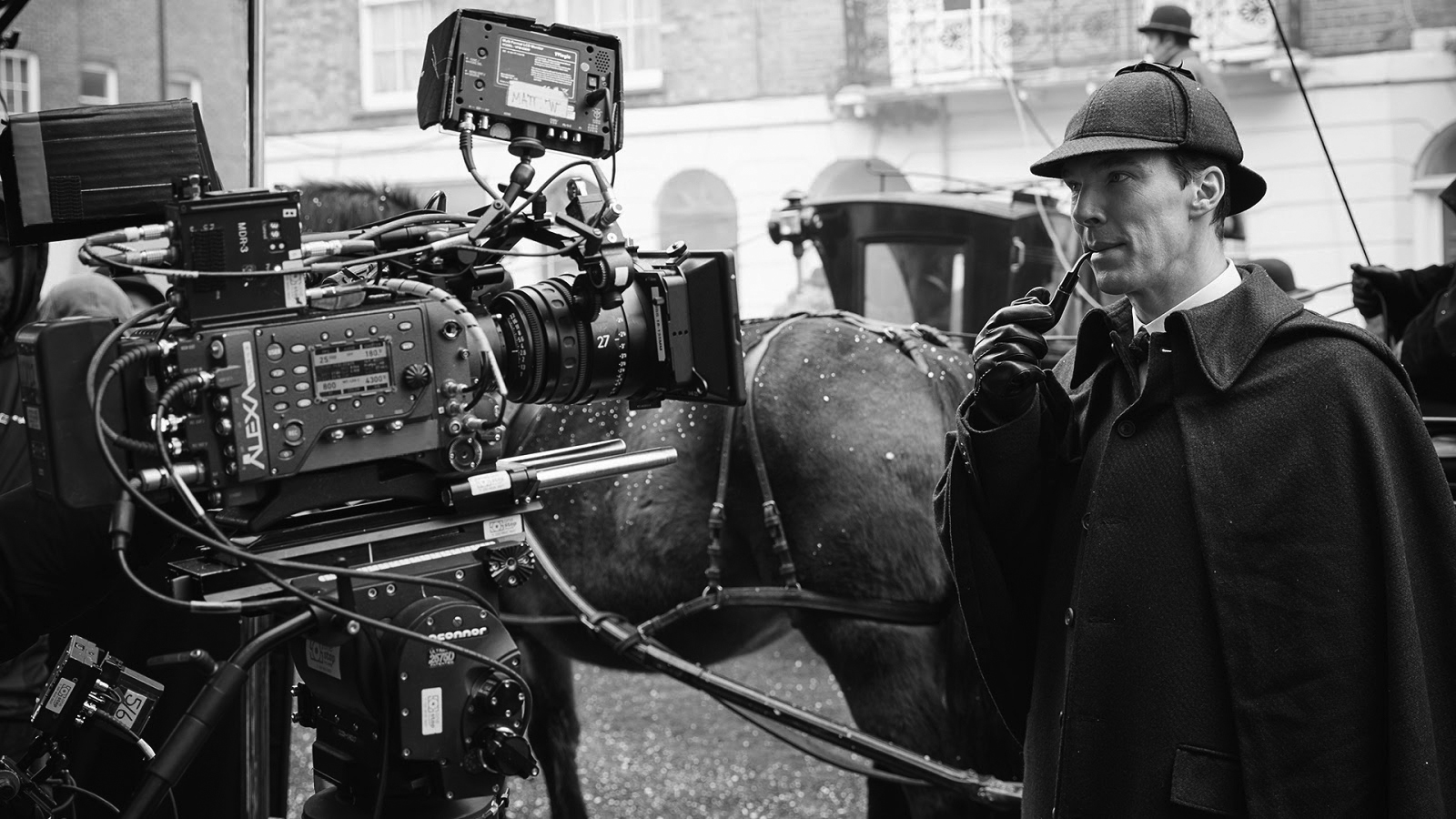

When it comes to adaptations, staying true to the source material is very difficult. Fortunately, “Sherlock” has always been good at navigating that particular problem, successfully translating Sir Arthur Conan Doyle’s stories and characters in a modern way while adding its own particular twists. However, with Season 4, “Sherlock” seems to have fallen into the problem of spending so much time expanding the show that it leaves behind what made it so entertaining in the first place. Throughout the entirety of the fourth season, Sherlock Holmes never tackles a true mystery and the show is weaker for it. While Season 4 isn’t bad in itself, it’s certainly the show’s poorest season so far.
Season 4 opens with “The Six Thatchers,” taking place right where Season 3 and the Christmas Special ended, with Sherlock Holmes (Benedict Cumberbatch) murdering Charles Magnussen in cold blood and being sent on a suicide mission overseas, only to be recalled back to England upon the appearance of the supposedly resurrected Moriarty (Andrew Scott). Right off the bat, the show gives one of the most frustrating moments of the season as it completely overrides the excellent finale in Season 3 and decides that Sherlock should face no consequences for his actions. Instead, Sherlock and Watson (Martin Freeman) are free to jump right back into the detective business. However, Sherlock solves the case of the week in about five minutes, and the show decides to focus on a plot revolving around Mary Watson’s (Amanda Abbington) past as a secret agent. Instead of feeling like a detective show, “Sherlock” begins to feel like a bad spy show as Sherlock spends his time listening to stories rather than investigating leads or making deductions. The one positive aspect of the episode is that it signals a return to focusing on the relationship between Watson and Sherlock, something that had been lacking for the past few episodes.
While certainly a step up from the previous episode, “The Lying Detective” still fails to meet up to “Sherlock”’s standards. The plot is definitely the weakest link here as it has Sherlock’s perception and thoughts being brought into question, and the audience’s by extension, which does not make sense considering the characters and the story. Additionally, the audience can only tolerate? So much of the crazy and surreal camera work that the show is so fond of using during Sherlock’s drug trips, which takes up way more time than it deserves. Still, there are some positives here. The high point of this episode, and one of the high points of the season, is Toby Jones’ delightfully sinister portrayal of Culverton Smith, a philanthropic entrepreneur that Sherlock suspects is a serial killer. He seems almost shark-like throughout, particularly when he innocently asks Sherlock how to find a serial killer while they are sitting in a room full of children. Additionally, the ending of the episode involves a reveal that clarifies a few inconsistencies from “The Six Thatchers” and brings forth an intriguing new antagonist for Sherlock to face off against in the next episode.
That antagonist certainly does not disappoint in the season finale, “The Final Chapter,” which is definitely the season’s best episode. In fact, I’d say that the antagonist is a little too competent, with the ability to reprogram people into obedient servants just by talking to them. Eventually, the antagonist manages to trap Sherlock, Watson and Mycroft Holmes (Mark Gatiss) and forces them to complete various intellectual, emotional and moral trials in order to save a little girl trapped on a crashing airplane. While the episode is certainly entertaining, it makes little sense and often finds itself bogged down in melodrama, something Sherlock himself would probably balk at. Still, the episode contains perhaps the finest moment of the season when it decides to highlight just how important the friendship between Sherlock and Watson is. Their relationship practically defines the show, and “The Final Problem” resolves themes and arcs that the show has been setting up since the very first episode. It’s incredibly fitting, considering that the interplay between Cumberbatch and Freeman continues to be the show’s greatest strength
To put it mildly, no one knows what is going to happen with “Sherlock.” As Benedict Cumberbatch and Martin Freeman continue their ever growing Hollywood careers, there seem to be less and less opportunities for the two of them to meet up with the “Sherlock” crew to actually make another season of this. By the end of Season 4, it becomes clear that the showrunners are perfectly aware of this, finishing on a scene celebrating the eternal adventures of Sherlock Holmes and Dr. Watson. If this is truly Cumberbatch and Freeman’s final outing, it’s a shame it couldn’t have been a better one.